Bin Zhang
Affiliate Faculty, Texas A&M Institute of Data Science
Visiting Research Fellow, Carnegie Mellon University
- bzhang@mays.tamu.edu
- 979-458-1759
- Wehner 330E
Education
Ph.D., Information Systems Management, Carnegie Mellon UniversityM.S., Machine Learning, Carnegie Mellon University
Research Interest
Very large social network analysis, statistical modeling for social network problems, social media, business analytics and deep learningCourses Taught
ISTM 450: Business Intelligence and Data MiningISTM 650: Business Data Mining
ISTM 689: Business Data Mining (Online)
Biography
Dr. Bin Zhang is an Associate Professor of Information & Operations Management at Mays Business School. He joined Texas A&M in July 2021.
Dr. Zhang’s primary research interests are social media analytics and machine learning. He is specifically interested in designing algorithms to analyze large social network and developing deep learning methods to investigate social media content such as text, image and video. His work has been published in premier journals such as MIS Quarterly, Information Systems Research, Production and Operations Management, Journal of Management Information Systems, etc. His projects have been funded by federal agencies such as NSF and NIH. Dr. Zhang has extensive teaching experience in Database, Data Mining, Data Analytics, and Programming Languages. All of these courses receive very high evaluation from the students.
Dr. Zhang has served on multiple review panels for NSF, and is the previous Vice Chair of INFORMS College of AI. He is an affiliate faculty of Texas A&M Institute of Data Science and a Visiting Research Fellow affiliated with iLab at Carnegie Mellon University.
Research Publications
Guo, C., Zhang, B., Chen, X., & Goes, P. (2024). Using “Super Apps” in Online Retailing Operations: Evidence from a Large Hotel Chain. Production and Operations Management. https://doi.org/10.1177/10591478231224908
NSF Award # 1261977 – The structure and dynamics of generative innovations: An organizational genetics approach. (02/2013-01/2017). Retrieved from https://www.nsf.gov/awardsearch/showAward?AWD_ID=1261977
Um, S., Zhang, B., Wattal, S., & Yoo, Y. (2022). Software components and product variety in a platform ecosystem: A dynamic network analysis of WordPress. Information Systems Research. https://doi.org/10.1287/isre.2022.1172
Xie, J., Zhang, B., Ma, J., Zeng, D., & Lo-Ciganic, J. (2021). Readmission Prediction for Patients with Heterogeneous Medical History: A Trajectory-Based Deep Learning Approach. ACM Transactions on Management Information Systems, 13(2), 1–27. https://doi.org/10.1145/3468780
Liu, X., Zhang, B., Susarla, A., and Padman, R. (2020) Go to YouTube and See Me Tomorrow: Social Media and Self-Care of Chronic Conditions. MIS Quarterly, 44(1b), 257–283.
Zhang, B., Pavlou, P. A., & Krishnan, R. (2018). On Direct vs. Indirect Peer Influence in Large Social Networks. Information Systems Research, 29(2), 292–314. https://doi.org/10.1287/isre.2017.0753
Zhao, K., Zhang, B., & Bai, X. (2018). Estimating contextual motivating factors in virtual interorganizational communities of practice: peer effects and organizational influences. Information Systems Research, 29(4), 910–927. https://doi.org/10.1287/isre.2017.0752
Benjamin, V., Zhang, B., Nunamaker, J. F., & Chen, H. (2016). Examining hacker participation length in cybercriminal Internet-Relay-Chat communities. Journal of Management Information Systems, 33(2), 482–510. https://doi.org/10.1080/07421222.2016.1205918



